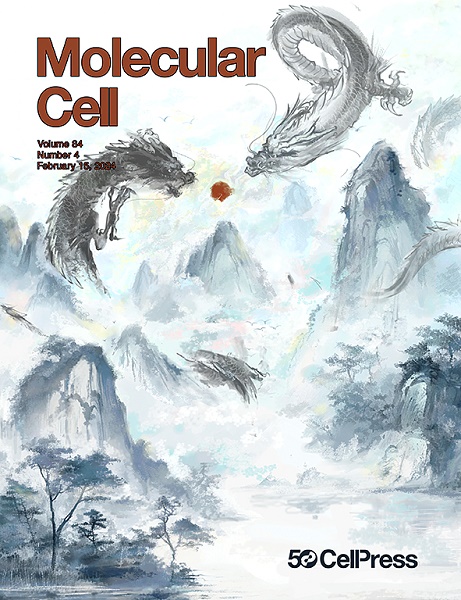蛋白质乳酸化的作用:癌症中万花筒般的翻译后修饰
IF 16.6
1区 生物学
Q1 BIOCHEMISTRY & MOLECULAR BIOLOGY
引用次数: 0
摘要
最近发现的赖氨酸乳酸化是一种重要的翻译后修饰,在表观遗传学和癌症生物学中具有广泛的意义。最初在组蛋白上发现,赖氨酸乳酸化也在非组蛋白上被描述,在转录激活、蛋白质功能和细胞过程中起关键作用。目前已经区分了两种主要的乳酸基片段来源:l-乳酸辅酶a (l-乳酸基片段的前体)和s - d -乳酸谷胱甘肽(d -乳酸基片段的前体),它们分别实现了赖氨酸乳酸化的酶促和非酶促机制。虽然这种修饰的具体作者、删除者和读者尚不清楚,但乙酰转移酶和去乙酰化酶已被认为是赖氨酸乳酸化的关键介质。值得注意的是,乳酸化对关键的癌症相关通路具有显著影响,从而在恶性转化和转移级联过程中塑造细胞行为。因此,最近对赖氨酸乳酸化的深入研究强调了其在肿瘤生物学中日益增长的潜力,靶向这种修饰正在成为癌症治疗的重要机会。本文章由计算机程序翻译,如有差异,请以英文原文为准。
The role of protein lactylation: A kaleidoscopic post-translational modification in cancer
The recently discovered lysine lactylation represents a critical post-translational modification with widespread implications in epigenetics and cancer biology. Initially identified on histones, lysine lactylation has been also described on non-histone proteins, playing a pivotal role in transcriptional activation, protein function, and cellular processes. Two major sources of the lactyl moiety have been currently distinguished: L-lactyl-CoA (precursor of the L-lactyl moiety) and S-D-lactylglutathione (precursor of the D-lactyl moiety), which enable enzymatic and non-enzymatic mechanisms of lysine lactylation, respectively. Although the specific writers, erasers, and readers of this modification are still unclear, acetyltransferases and deacetylases have been proposed as crucial mediators of lysine lactylation. Remarkably, lactylation exerts significant influence on critical cancer-related pathways, thereby shaping cellular behavior during malignant transformation and the metastatic cascade. Hence, as recent insights into lysine lactylation underscore its growing potential in tumor biology, targeting this modification is emerging as a significant opportunity for cancer treatment.
求助全文
通过发布文献求助,成功后即可免费获取论文全文。
去求助
来源期刊

Molecular Cell
生物-生化与分子生物学
CiteScore
26.00
自引率
3.80%
发文量
389
审稿时长
1 months
期刊介绍:
Molecular Cell is a companion to Cell, the leading journal of biology and the highest-impact journal in the world. Launched in December 1997 and published monthly. Molecular Cell is dedicated to publishing cutting-edge research in molecular biology, focusing on fundamental cellular processes. The journal encompasses a wide range of topics, including DNA replication, recombination, and repair; Chromatin biology and genome organization; Transcription; RNA processing and decay; Non-coding RNA function; Translation; Protein folding, modification, and quality control; Signal transduction pathways; Cell cycle and checkpoints; Cell death; Autophagy; Metabolism.
 求助内容:
求助内容: 应助结果提醒方式:
应助结果提醒方式:


